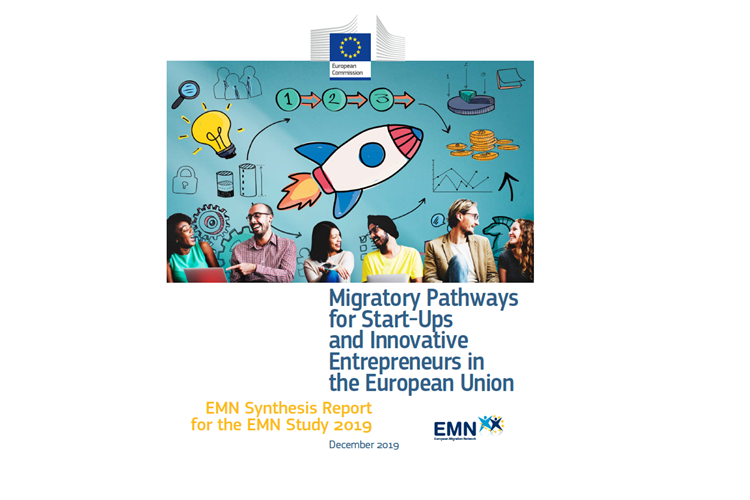Migratory Pathways for Start-Ups and Innovative Entrepreneurs in the European Union
The latest EMN study explores national policies and practices in EU Member States to attract and retain start-ups and innovative entrepreneurs
Over half of the EU Member States consider that attracting and retaining innovative entrepreneurs and start-ups from countries outside the EU will promote a vibrant entrepreneurial culture. What are the main pull factors and requirements for foreign start-up founders and employees? A new study from the European Migration Network reveals good practices and challenges from 25 EU Member States.Recent years have seen a proliferation of admission schemes for ‘start-ups’ and ‘innovative entrepreneurs’, both within the EU and globally. They consist of incentives such as special visas or residence permits for innovative entrepreneurs from third countries. The UK was the first country to introduce a specific scheme in 2008, followed by Ireland in 2012, Spain in 2013, Italy in 2014 and the Netherlands in 2015. By 2018, thirteen Member States had specific admission schemes in place. A special visa and residence permit to admit start-up employees exists in Cyprus, Estonia, France and Portugal. Member States that do not have a specific start-up scheme in place reported that they use other channels to admit start-up founders from third countries, such as long-term visas and residence permits for self-employment and business activities.
Who can apply for the start-up schemes? All schemes target a specific type of business. Typically, the start-up founder is required to present a business plan. Some countries also require a minimum level of investment capital or participation in a sponsorship or support scheme. Conditions related to the start-up founder can include proof of resources, insurance, a certain level of qualification or language skills. The average processing time of applications is around one month in most Member States to issue a decision.
In 2018, the highest number of applications for start-up schemes was recorded in Estonia (783), followed by Spain (305), Lithuania (178), the Netherlands (127), Finland (108) and Italy (92). The UK saw the highest number of residence permits/visas issued with 1 160 entrepreneur long-term visas and 315 graduate entrepreneur visas, followed by France with 524 ‘talent passports' issued. Countries with start-up scenes, hubs and locations with well-developed 'ecosystems' for start-ups were found to be the most attractive for innovative entrepreneurs. Access to funding and factors such as cost of living, salary levels, housing and quality of life also play a role in the global competition for talent.
Start-up admission schemes generally aim at fuelling economic growth and innovation and making the country more competitive in the globalised knowledge economy. Improving the EU’s attractiveness for foreign entrepreneurs forms part of the objective of upgrading the single market. Attracting start-ups is also in line with EU migration policy objectives, such as tackling demographic change and satisfying labour market needs. According to the European Commission, if the EU is to remain a globally competitive player it needs to find better ways to attract migrant innovative entrepreneurs and support those already present in the EU.
To download the study please click here.
To download the Inform on the study please click here.
To download the Flash (one page) of the study please click here.
